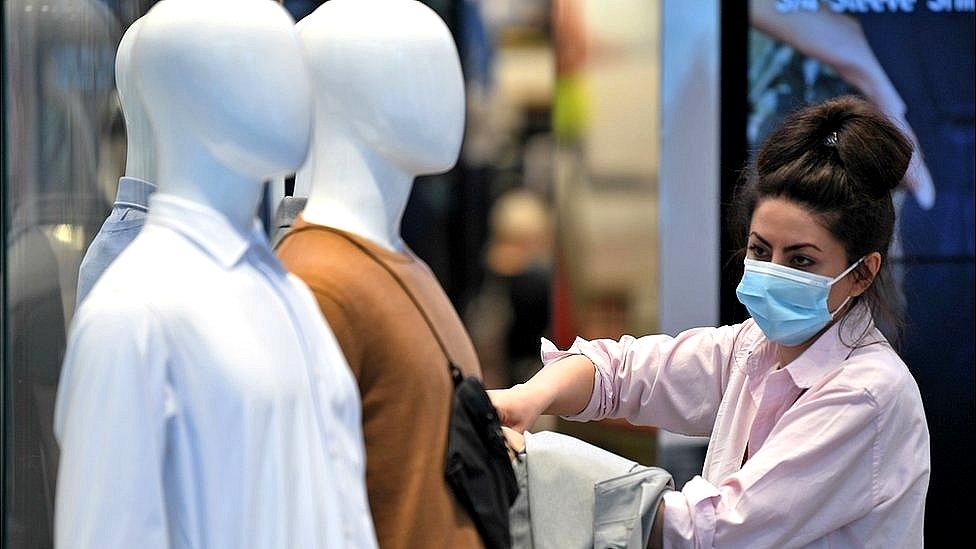Coronavirus: Restrictions 'bringing shops to the brink'
- Published
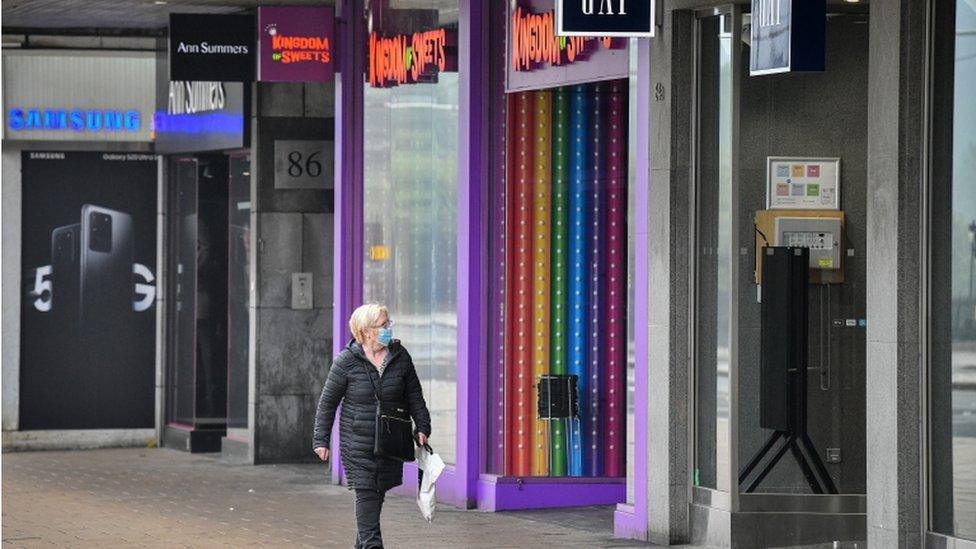
Non-essential shops have remained closed in Scotland since late March
Scottish retail sales improved last month but still slumped by more than a quarter, according to a regular survey.
Total sales in May were down year-on-year by 27.6%, although this was an improvement on the record low recorded in April (32.2%).
Overall food sales rose 3.6%, with grocers reporting a higher basket spend than before the Covid-19 crisis, the SRC-KPMG Retail Sales Monitor found.
But there was a 53.2% drop in total non-food sales.
The Scottish Retail Consortium said ongoing restrictions on trading were bringing many retailers "to the brink".
Since late March, only stores in Scotland regarded as essential - such as food shops, pharmacies, banks and garages - have been permitted to remain open.
In Northern Ireland and England, non-essential shops have now reopened, but no date has yet been set for Wales and Scotland.
However, Scotland is expected to move to the second phase of the government's "route map" towards lifting lockdown on Thursday, which could see a "safe reopening" of more shops and workplaces.
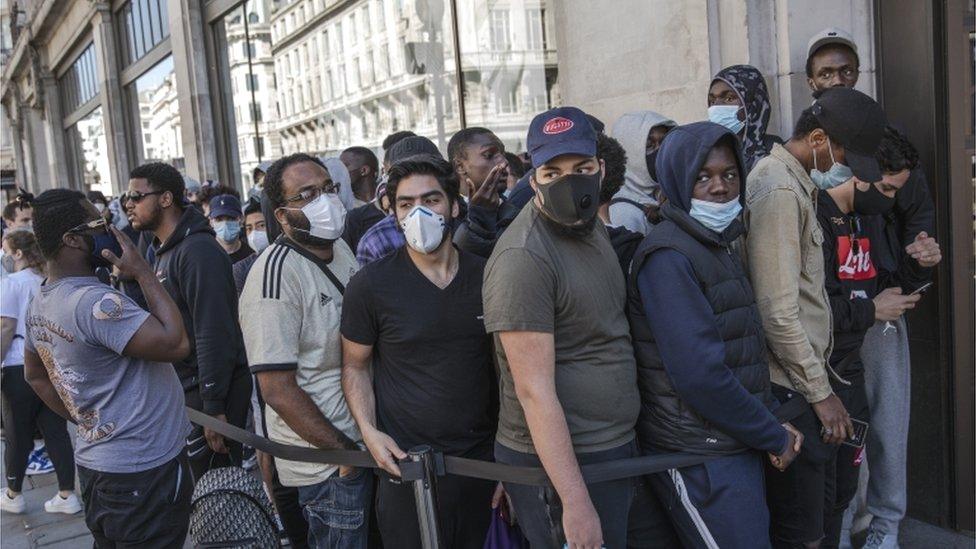
Non-essential retailers reopened for business in England on Monday
The latest SRC-KPMG monitor suggests online sales, especially of non-food items, have become increasingly important.
Games and electricals performed well last month, as did kitchen appliances.
However, the figures also indicated fashion and footwear sales struggled as schoolchildren and office workers did not require uniforms or workwear.
SRC head of policy Ewan MacDonald Russell said: "While the figures were an improvement on April's record low, restrictions on trading are bringing many retailers to the brink.
"The current crisis is forcing retailers who are currently barred from opening to accelerate the move to online and multi-channel sales.
"When combined with weak consumer demand and confidence, there is a real risk of entering a vicious economic cycle where reduced retail, hospitality, leisure and other sales leads to more pressure on businesses through the supply chain, which leads to fewer workers."
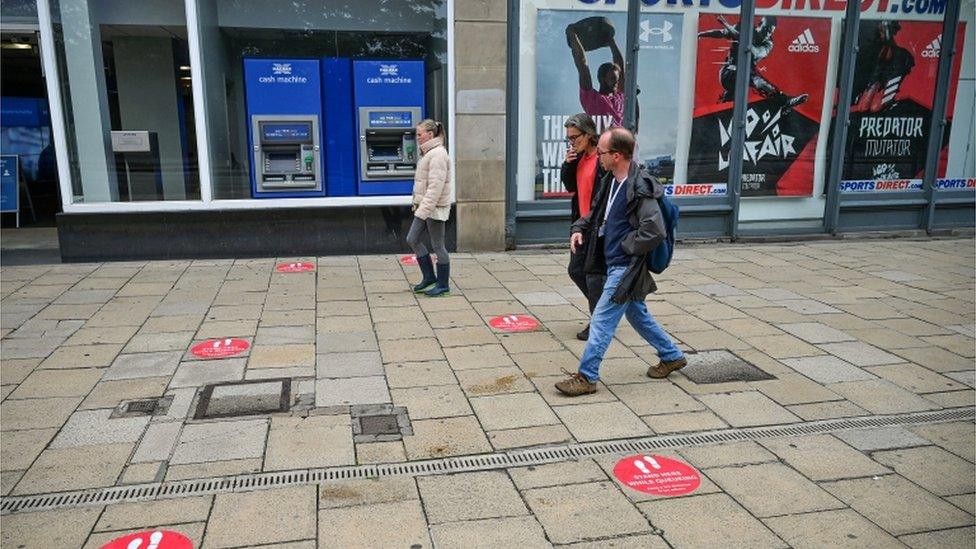
KPMG says Scottish retailers will need to rebuild footfall and takings once restrictions are eased
Paul Martin, KPMG UK head of retail, said there was a "glimmer of hope" for the industry following April's record low sales figures.
He said: "The food sector is understandably holding its own but the focus now shifts to the hundreds of independent and chain non-food retailers preparing to open their doors as restrictions ease.
"For Scotland's retailers, the battle for survival is far from over.
"With the safety of employees and customers at the forefront, retailers will need to gradually rebuild footfall and takings with innovative public health measures and a margin enhancing sales strategy.
"June could become a crucial month as the sector, and consumers, come to terms with a very different looking high street."

A SIMPLE GUIDE: How do I protect myself?
LOOK-UP TOOL: Check cases in your area
MAPS AND CHARTS: Visual guide to the outbreak

- Published13 June 2020
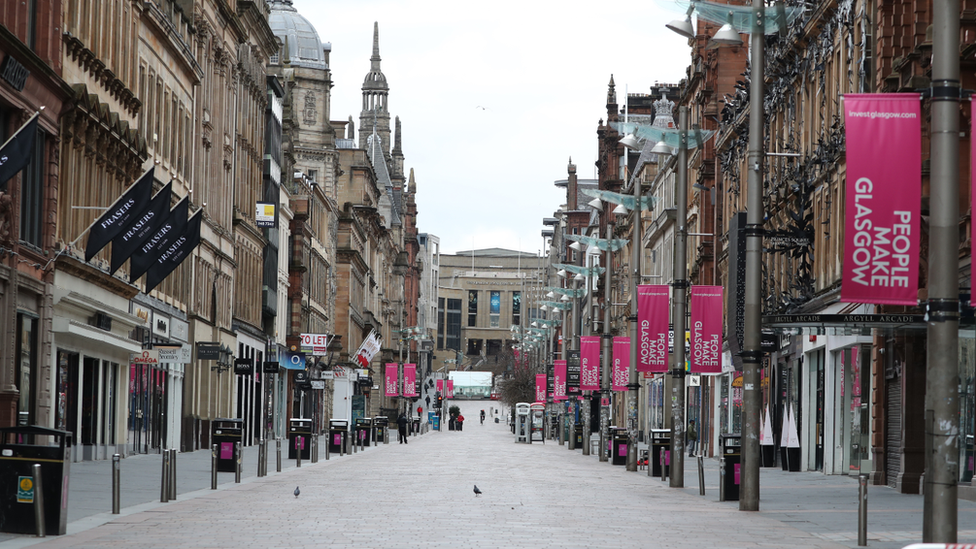
- Published12 June 2020
